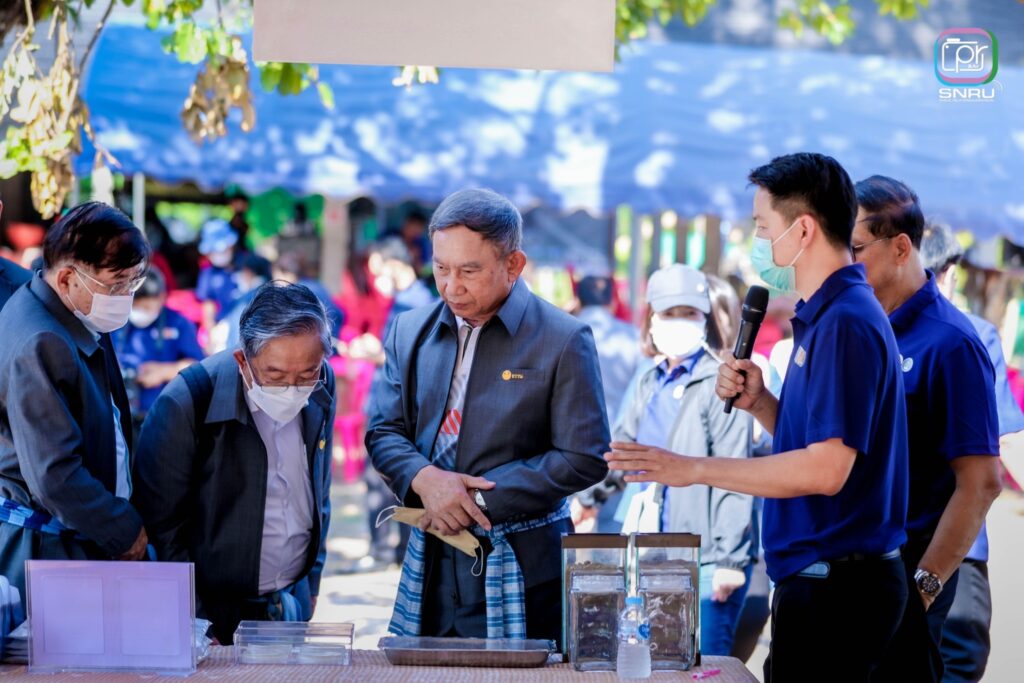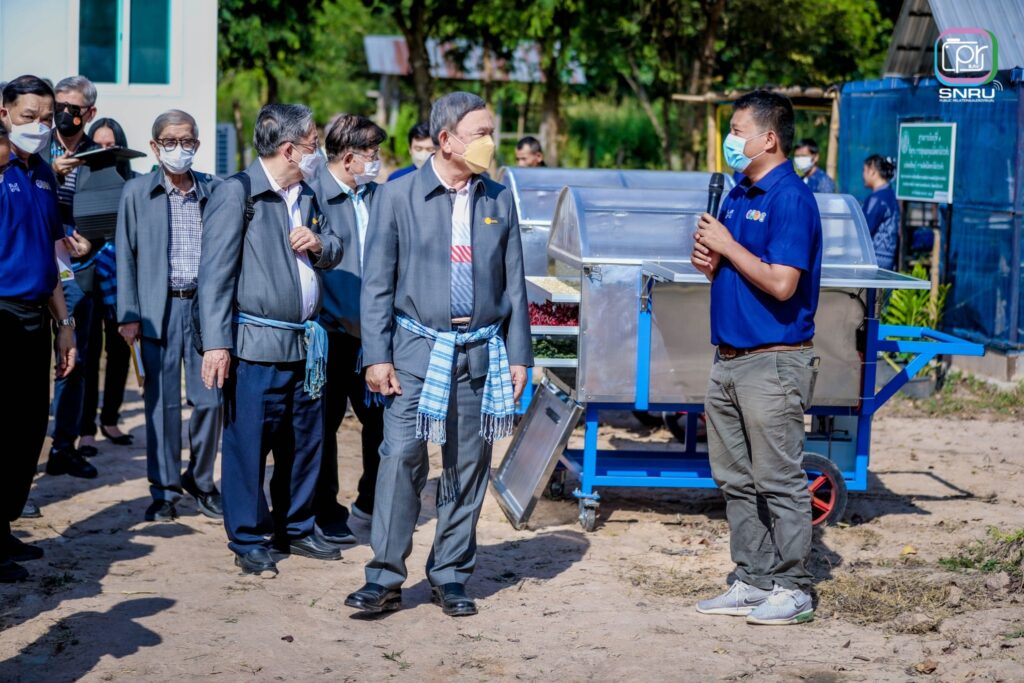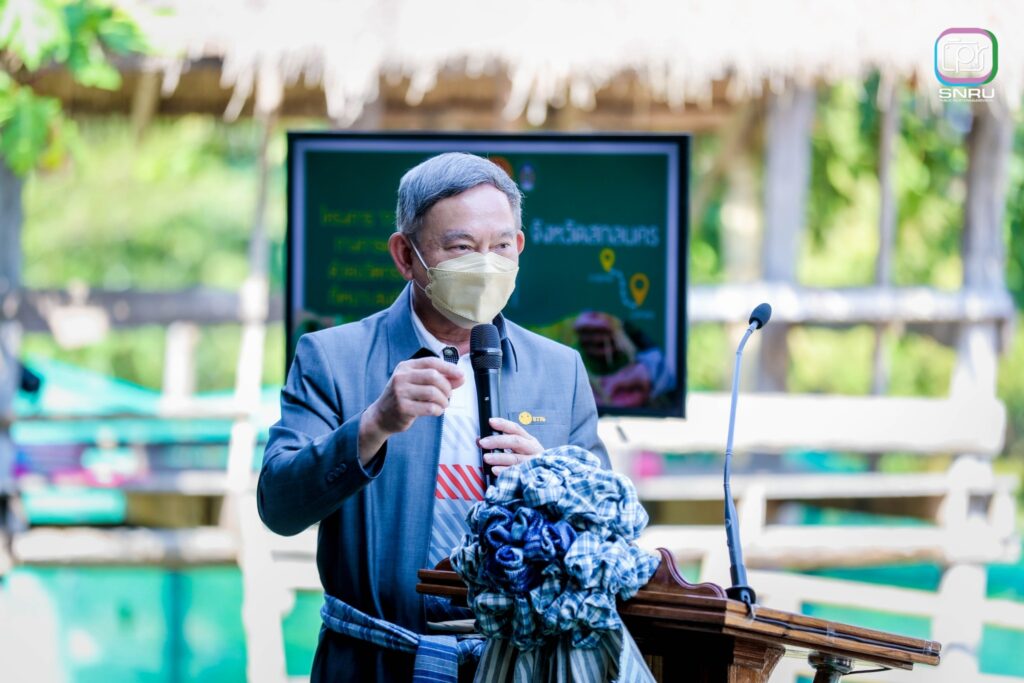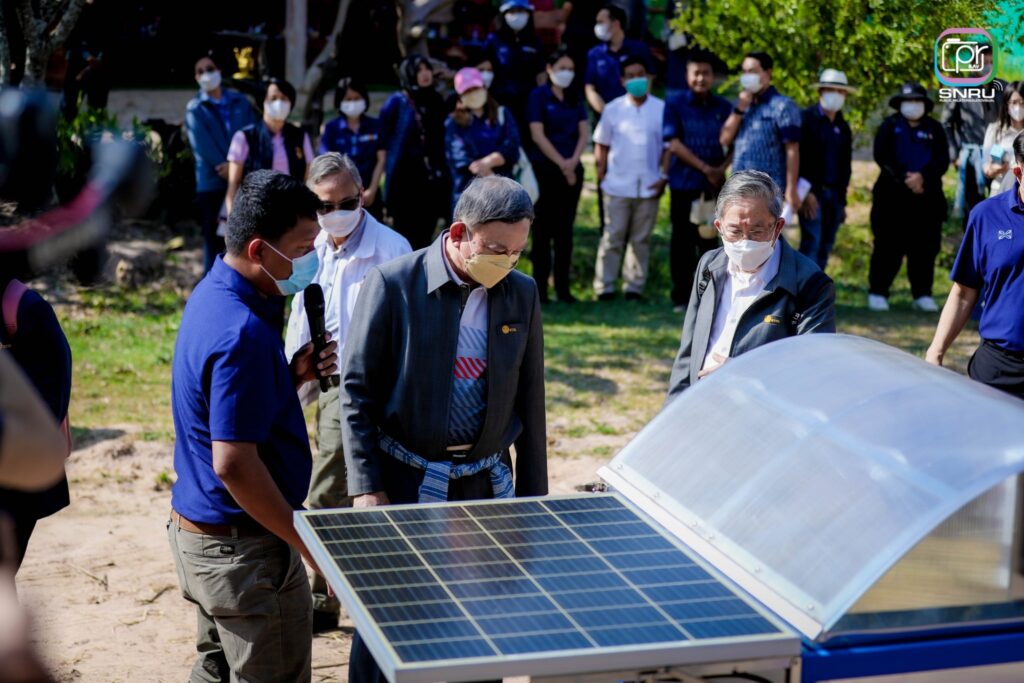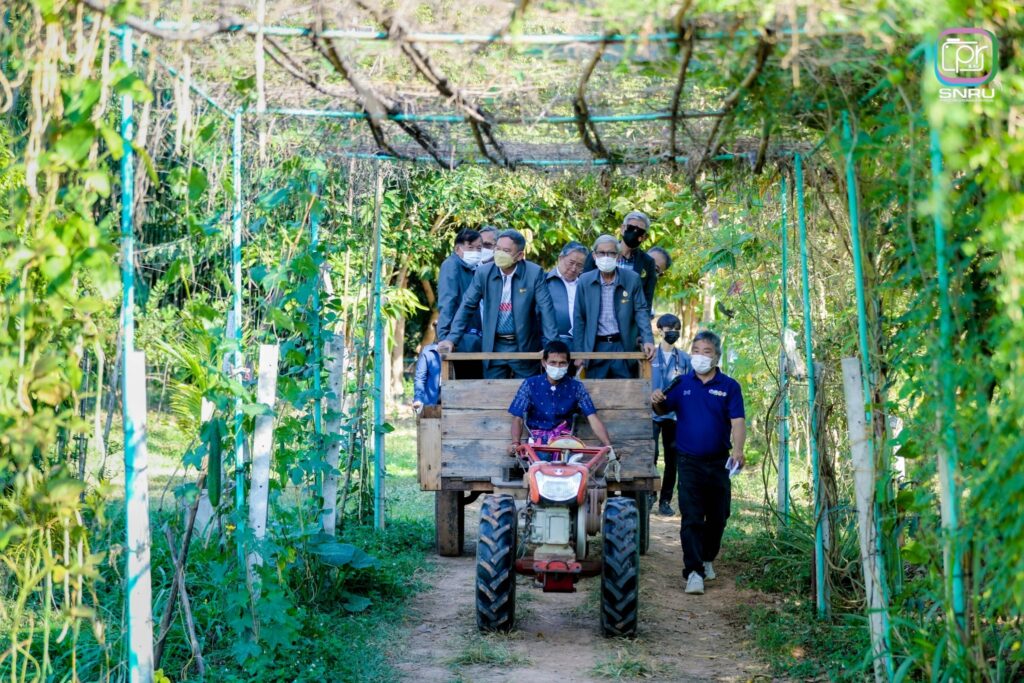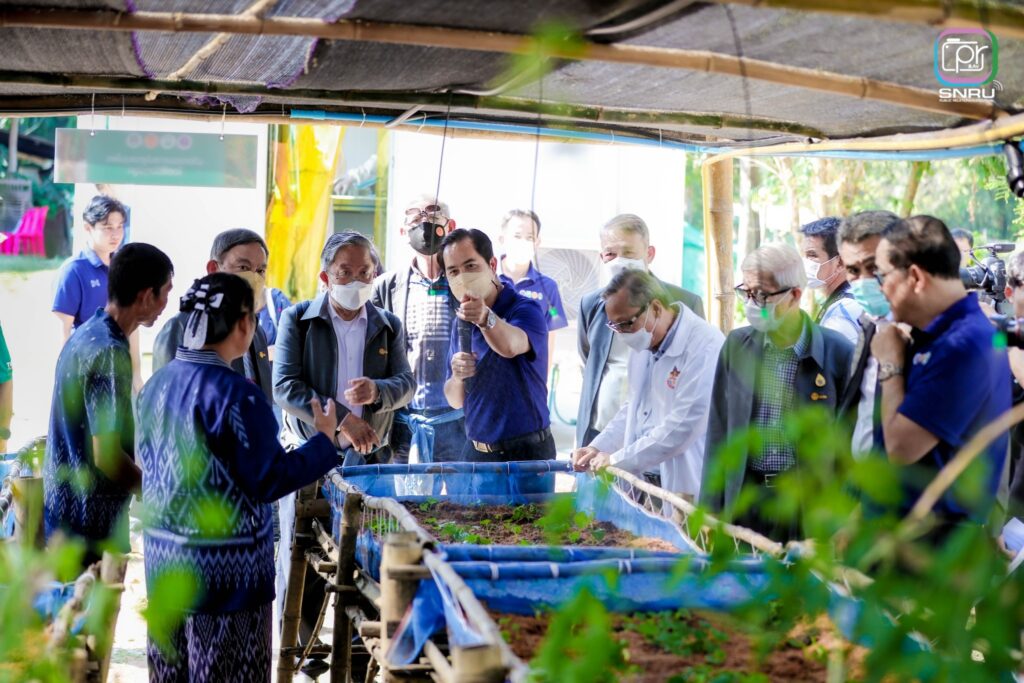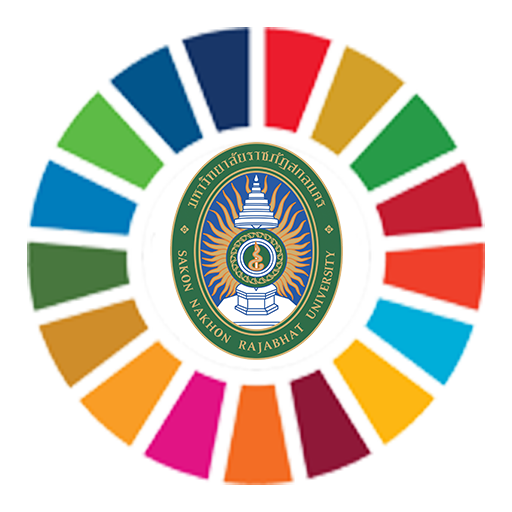On November 6, 2022, researchers at Sakon Nakhon Rajabhat University welcomed Air Chief Marshal Prajin Jantong, Chairman of the Senate Committee on Higher Education, Science, Research, and Innovation, and others. They visited the area to follow up on the project ‘Improving Agricultural Production in Dry Areas through Innovation and Technology Suitable for Local Communities in Sakon Nakhon Province. The visit took place at the Ban Phon Pla Lo learning plot area, where a community enterprise group of farmers cultivates pesticide-free tomatoes, safe herbs, and processes Nang Noi rice in the Tao Ngoi Subdistrict of Tae Ngoi, Sakon Nakhon Province. Assistant Professor Chakrit Chanchitpreecha, Acting President of Sakon Nakhon Rajabhat University, led the delegation. During the visit, the research team presented the results of the project’s operations, which spanned three months. They conducted various activities in the area to study the local context, gather information on problems, and identify the needs of conservation and restoration groups. These groups included the one involved in preserving the ‘Hom Dok Hung’ rice variety in Ban Khok Sa-at, Um Chan Subdistrict of Kusuman District, Sakon Nakhon Province, as well as the herbal group in Tao Ngoi District (a community enterprise of farmers specializing in pesticide-free tomatoes, safe herbs, and the processing of Nang Noi rice in Tao Ngoi Subdistrict) and the Thai Nong Ba Herbal Community Enterprise Group in Bueng Thawei Subdistrict. Air Chief Marshal Prajin Jantong and the committee provided valuable feedback and exchanged opinions with the target groups for development.
Furthermore, the Senate committees explored innovative solutions that cater to the specific needs of the region, spanning from the water’s source to its middle and downstream areas. During this visit, researchers provided information on various innovations tailored to the local context. These innovations encompassed the utilization of local organic biota, the promotion of safe agriculture through greenhouse systems, the ‘Genius’ innovation for herb cultivation using versatile energy pumping carts, solar-powered refrigeration, ride-on electric tractors, standard mobile factories adhering to GMP (Good Manufacturing Practices), and portable hot air dryers powered by solar cells, among others.
Subsequently, the delegation ventured to herbal cultivation plots in Tao Ngoi District and Kusuman District, cultivated by community enterprise groups, farmers, and the Royal Ready-Made Food Factory. The researchers gathered diverse insights, which will serve as a guiding framework for the project’s implementation, ensuring sustainable development while addressing area-specific challenges.
